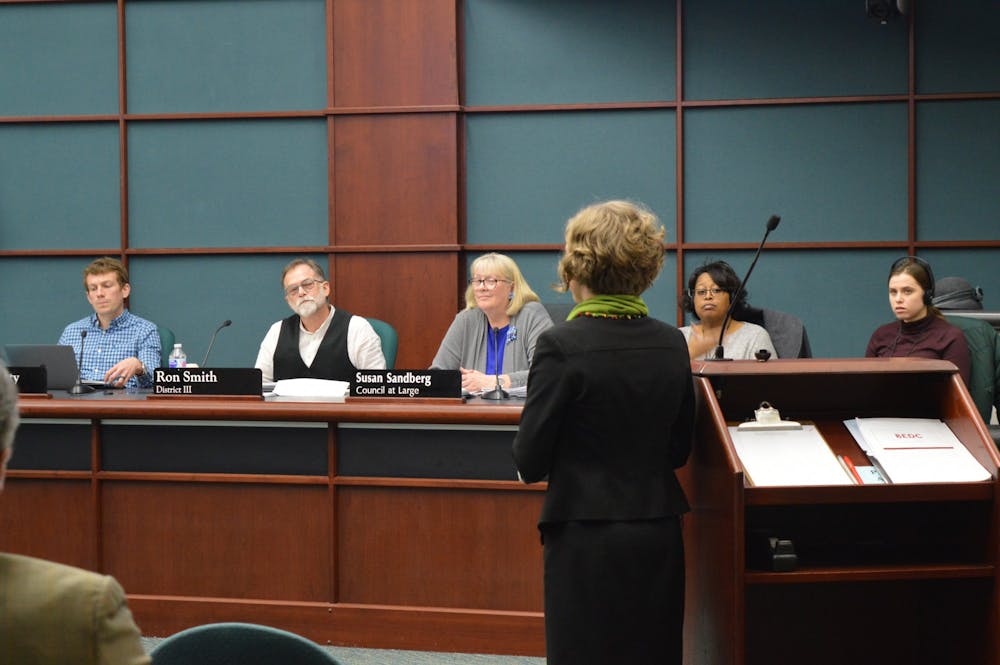The City of Bloomington’s proposed 2021 budget is the mayor’s first budget in which expenses are higher than projected revenues. Community members can learn more and ask officials about the budget during departmental hearings Monday through Thursday.
Hearings will take place virtually at 6 p.m., and links to join the Zoom calls are available on the city’s website.
The city council will discuss the budget-related legislation in September and is scheduled to adopt it in October, but this week’s meetings are the first step in creating the new budget.
Here’s a breakdown of the main departments that will present their budget proposals each evening:
Monday: compensation and health insurance, human resources, city clerk, legal, information technology services, city council, controller, mayor’s office
Tuesday: fire and police
Wednesday: public transit, Bloomington Housing Authority, housing and neighborhood development, economic and sustainable development, community and family resources, and parks and recreation
Thursday: utilities, planning and transportation, engineering and public works
Mayor John Hamilton said during a press conference Friday the 2021 proposed budget is designed to do two main things: maintain public services and invest in economic recovery in a way that promotes racial and climate justice.
“As we recover, we move toward a Bloomington that really reflects our values,” Hamilton said.
The proposed $166 million budget is about 4% less than the amount 2020’s budget accounted for, he said.
The largest single funding source in the city budget is the General Fund, which is supported by property taxes and local income taxes, Hamilton said. The budget proposes money be reallocated such that the fund will see a 4% increase, about $2 million, compared to last year’s budgeted General Fund.
Some shortcomings
This year’s proposed budget doesn’t include some investments city officials wanted to make. For example, Hamilton said the city won’t provide any significant improvements to paid family leave, although the federal CARES Act does allow for extra paid family leave due to the COVID-19 pandemic. It also won’t provide incentives for public safety employees to live inside city limits. Greenways, or undeveloped lands near an urban area that are set aside for recreational or environmental use, will also not be as much of a focus as city officials had hoped.
The mayor said the city is requesting 1.6 new full-time equivalent city employee positions, compared to the approximate 7.5 that have become available each year for the past few years. However, he said, the city is using its reserves to protect against hiring freezes, layoffs and major program cuts.
The city’s reserves and plans for economic recovery
Hamilton said the budget reflects measures to protect $1 billion of assets, and the city has reserves for more than four months of annual expenses.
“I do believe we do have rainy day reserves in order to help continue to provide services,” he said.
Over the next two years, Hamilton’s plan is to invest a total of about $8 million of reserves in alignment with the Recover Forward Bloomington initiative, his plan for the city’s recovery from the pandemic and subsequent economic crisis. By the end of 2022, the city will have shifted to keeping a three-month reserve. State officials recommend two months of expenses reserved, Hamilton said.
“I think we have a prudent picture of how to get through 2021 and the basic services through 2022,” he said.
Hamilton said several departments’ proposed budgets dedicate about $2 million total in investments as part of the Recover Forward initiative.
Police department reform
After the summer’s resurgence of the Black Lives Matter movement and nationwide calls to defund police departments, the budget proposes to reduce the number of Bloomington Police Department sworn officers from 105 to 100. Hamilton said the budget doesn’t eliminate the five sworn officer positions, but they are just not funded for 2021.
He referred to the difficulties in recruiting police officers and also emphasized the importance of proactive policing and community building rather than solely responding to service calls.
The reallocated money will fund non-sworn positions, such as social workers or neighborhood resource specialists. The department has one police social worker and two neighborhood resource specialists, according to a 2020 public safety report released this week. Two more specialists are undergoing training now.
The budget also suggests parking enforcement be handled by a new parking division instead of BPD and that some grant money for downtown resource officers, who focus on assisting the homeless, be reallocated to the Community and Family Resources Department.
Organizational recommendations
The budget proposes the engineering division under the Planning and Transportation Department become its own department. Deputy Mayor Mick Renneisen said during the press conference that due to the division’s staff numbers and volume of engineering work, it’s more efficient for it to be autonomous. He also said the reorganization could make it easier for staff the open city engineer position, which was previously difficult to fill.
There’s also a proposed new parking division under the Public Works Department that will consolidate other parking divisions under various city departments.



